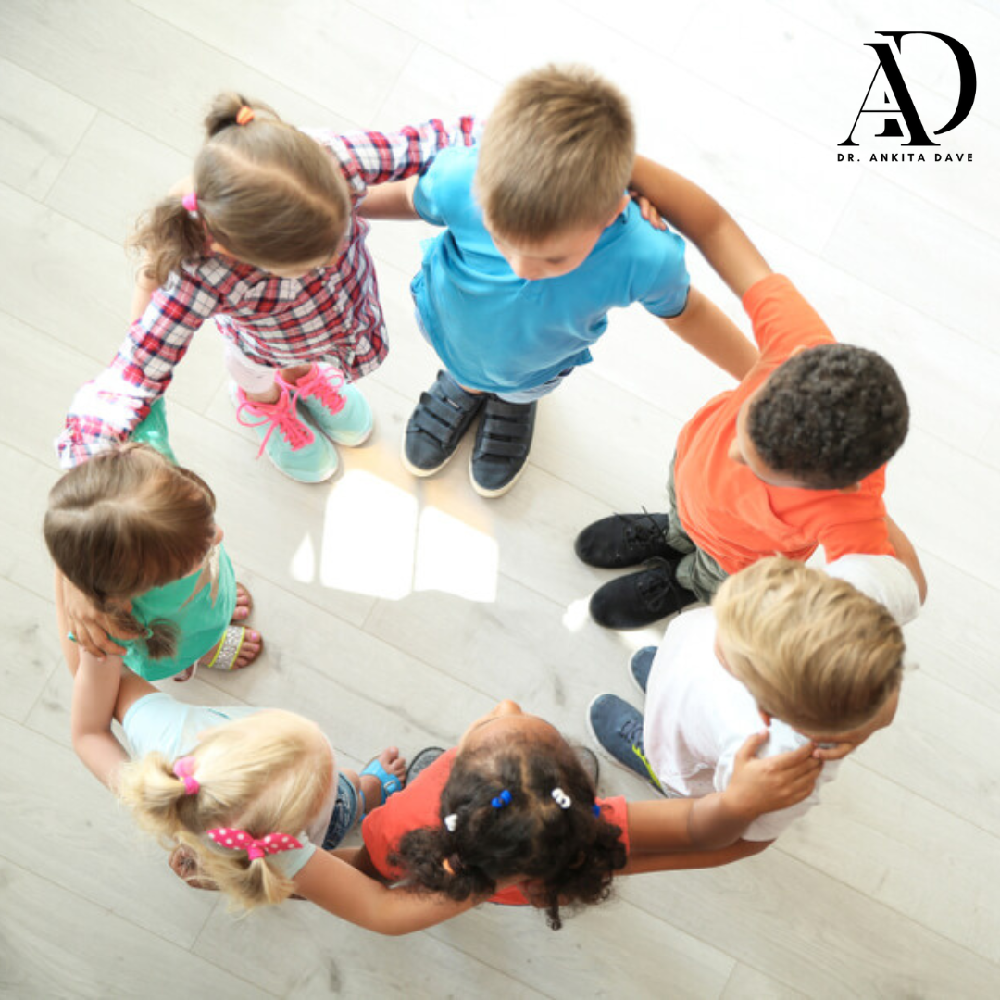Social Skills Development in Children – Raising Confident, Kind Communicators
 Ever watched your kid on the playground and wondered, “Should they be saying more? Sharing more? Joining in?” You're not alone.
Ever watched your kid on the playground and wondered, “Should they be saying more? Sharing more? Joining in?” You're not alone.
Just like walking or reading, social skills don’t come fully formed. They’re learned, practiced, and sometimes totally messy — and that’s okay. Whether your child is the shy observer or the bossy ring-leader (or both in a single afternoon), building strong social skills is a journey.
Let’s explore how you can help your child grow into a confident, kind, and emotionally aware communicator — without flashcards or forced hugs involved.
🤝 What Are Social Skills, Anyway?
Social skills are the tools kids use to connect, communicate, and navigate relationships. These include:
Taking turns and sharing
Starting and maintaining conversations
Recognizing emotions in themselves and others
Problem-solving and resolving conflicts
Showing empathy and kindness
It’s not just about saying "please" and "thank you" (though that helps!). It’s about learning how to build relationships, from the sandbox to the schoolyard — and later, in the workplace and beyond.
🛠️ 1. Model the Behavior You Want to See
Kids are little copy machines — for better or worse. They watch how you talk to others, how you handle stress, how you say sorry.
So try this:
Narrate your social thinking out loud: “I’m waiting my turn to speak,” or “I’m frustrated, so I’m taking a deep breath.”
Show kindness even in small moments — saying hello to the mail carrier or helping a neighbor.
You don’t have to be perfect — just intentional.
🎭 2. Play Is the Original Social Classroom
Kids learn so much through play. Whether it’s pretend tea parties, building towers together, or superhero adventures — they’re learning:
How to take turns
How to negotiate
How to lead and follow
How to manage frustration when things go sideways
Encourage unstructured play and keep screen time balanced. Real-life play builds real-life social tools.
🗣️ 3. Practice Conversations at Home
Not every kid naturally knows how to say, “Hi, can I play too?” — but you can teach them.
Use role-play to act out situations:
Joining a game
Asking for help
Introducing themselves to a new friend
Make it silly, fun, and pressure-free. These mini rehearsals build confidence in real moments.
🧠 4. Talk About Feelings — Theirs and Others’
The more kids understand emotions, the better they’ll navigate social situations.
Use simple tools:
Picture books about friendship and feelings
Emotion cards or mood charts
Ask questions like: “How do you think she felt when that happened?”
The goal? Raising kids who don’t just react — but respond with empathy.
✨ 5. Praise Effort, Not Just Results
When your child shares, helps, or uses their words — notice it!
Try saying:
“That was kind of you to let your friend go first.”
“I saw you waited patiently. That’s hard — great job!”
Positive reinforcement helps them feel good about good behavior — and encourages them to keep doing it.
🧩 6. Remember: Every Child is Different
Some kids are chatty from birth. Others take time to warm up. Some prefer one-on-one play. Others dive into big groups.
There’s no single timeline for social skills — and comparing kids can do more harm than good.
If you have concerns, talk to your pediatrician or a child psychologist. But remember, slow progress is still progress.
💡 Final Thought: Social Skills Are a Lifelong Journey
You don’t need to enroll your toddler in “friendship bootcamp.” Just show up with patience, love, and opportunities to practice. Social skills are built in everyday moments — around dinner tables, during storytime, in playground negotiations, and even through the occasional sibling squabble.
And you? You’re doing amazing.
Keep planting seeds — the kindness, confidence, and empathy will grow. 🌱
 (5).png)
 (7).png)
